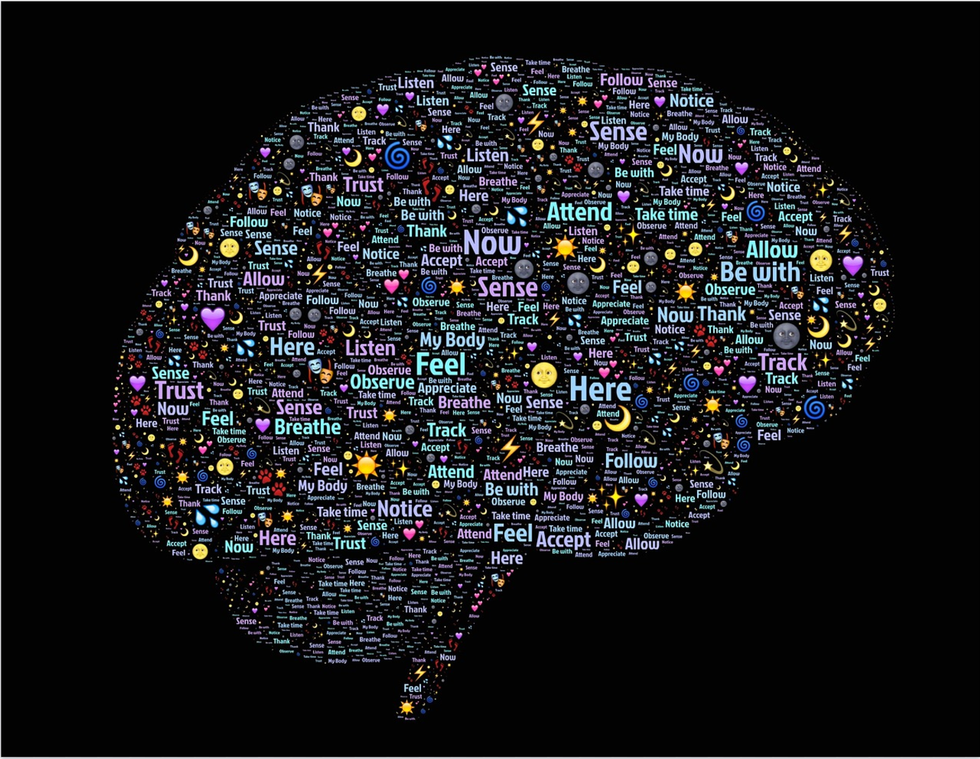What is your essence? What property defines human beings?
Through the ages philosophers developed arguments on the topic of the human essence; the idea that human beings are essentially defined by an immaterial substance, a soul or an immaterial mind, has been proposed by ancient Greek philosophers such as Plato.
This school of thought is referred to as Mind-body dualism: the idea that the mind and the body are separate yet interact and that the immaterial mind is essential to who we are whilst the body is not.
17th century philosopher French René Descartes put forward an influential argument in support of Mind-Body Dualism. In his book Meditations he states that mind and body are distinct as physical matter, such as human bodies, have a different type of existence to minds.
Bodies are divisible whilst minds are not. You might lose a hand or a foot but still be conscious that nothing has altered in your mind. However, you cannot divide up your mind.
For example, even though there are different types of thinking, I cannot discern different parts within my subjective conscience. Therefore, he concludes that the mind and body are attributed with different natures and thus are distinct from each other.
At first this might seem reasonable but on closer analyses the argument has some faults. Descartes’ contemporary, English Philosopher Thomas Hobbes, pointed out weaknesses. According to Hobbes, a key mistake made by Descartes is assuming that just because we can discuss ‘A’ and ‘B’ separately, this entails their separate existence.
The super hero Spiderman can be taken as an example; Peter Parker is meek and quiet whilst spiderman is bold and brave. Not knowing his true identity you would believe that Peter Parker and Spiderman are distinct as they have distinct properties. Perhaps mind-body dualism commits the same type of error.
However, Descartes proposes another argument. He puts forward the idea that that nothing in the world is certain, not even its existence. There is no way of proving that what we see around us is true. He questioned all knowledge we receive from our sensory experience of the world.
The only indubitable aspect of knowledge according to him is that we human beings think. He argues that whereas we can conceivably doubt the existence of everything around us, we cannot doubt the existence of our own minds. Therefore minds, which are immaterial, are essential to who we are and bodies are not.
Nevertheless, problems in his argument still arise. How do the body and mind interact? Descartes offers a scientific answer: according to him the pineal gland in our brain is the is the link between the material body and the immaterial mind. However, modern day research shows that its function is to produce the hormone melatonin, refuting this idea.
Materialism is another school of thought on the human essence, it proposes that we simply our our bodies and nothing more. It has value over dualism as it avoids the unanswered questions dualism arouses. For example, how can something immaterial exist? and how would disembodied minds interact, where are they located?
20th century English philosopher Gilbert Ryle proposed a Materialistic argument referred to as Behaviorism. He states that Mental states are behavioral states, arguing that that what is known to dualists to be the immaterial mind is actually a “complex pattern of behavior”.
This is demonstrated through the example of a university campus. Ryle states “A foreigner visiting Oxford or Cambridge for the first time is shown a number of colleges, libraries, playing fields, museums…He then adds ‘but where is the university?”.
The university is a concept for several different institutions, therefore this so called immaterial mind is just a concept for behavioral dispositions, thus it can not exist independently from the body. However, this too is not completely convincing as mental states cannot be attributed to behavioral states so neatly.
If we imagine a person who had been trained from childhood to conceal their reaction to pain, upon stubbing their toe they would not display a reaction associated with pain. If we adhere to the Behaviorism's claim, we would have to assume no pain has been felt. Therefore the argument is not true in all cases.
The arguments I have discussed only scratch the minuscule surface of a profoundly perplexing question. There is no definitive answer and many arguments prove compelling yet have significant limitations.
However, today many would side with Materialistic arguments. The rise of technology and the possibility of human-like artificial intelligence might blur the line between minds and machines.
After all, Descartes believed that a robot or computer would never be able to beat a human in a game of chess; with the advancements of technology this has occurred. Our conception of who we are, our essence and our place in the world has changed over the course of history and will continue to change.


















